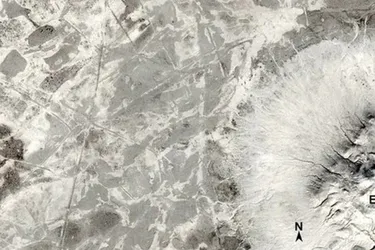Unique system of water channels discovered in Mesopotamia under the world's oldest city

Scientists have discovered an ancient irrigation system that supplied water for farmland from the Euphrates River before the first millennium BC. According to a new study, several millennia ago, the inhabitants of ancient Mesopotamia built an extensive system of irrigation canals to water their fields. This complex network ensured land fertility in a region where agriculture has always played a key role.
Archaeologists have discovered this ancient infrastructure near the ruins of the city of Eridu in what is now Iraq. Previously, knowledge about agriculture in Mesopotamia was based mainly on cuneiform texts and indirect evidence. Now it has been possible to find the actual remains of irrigation structures that give a clear picture of farming methods from the sixth to the beginning of the first millennium BC. This is reported by Live Science.
Interestingly, these canals have been preserved in excellent condition. The reason for this was that about 2000 years ago the Euphrates channel changed, and the area around Eridu was abandoned. The absence of new settlements and economic activity allowed the ancient system to be preserved in its original form.
The ancient network was discovered using satellite images, geological maps, and drones. Researchers have mapped more than 200 main canals that directly brought water from the Euphrates, as well as more than 4,000 secondary canals that provided water to more than 700 agricultural plots. Some of these canals were up to nine kilometers long and stretched along the banks of the river.
Experts note that such a large irrigation network was most likely not fully utilized at the same time. It has been expanding and changing for several centuries, depending on the needs of the region's inhabitants. Now, researchers intend to establish the exact age of individual canals to better understand how land cultivation methods have changed over time.
Mesopotamia is a historical region that covered parts of modern-day Iraq, Syria, Turkey, Iran, and Kuwait. The name comes from the Greek for "land between two rivers," referring to the Tigris and Euphrates. People began settling in these places about 8000 years ago and left them at the beginning of the first millennium BC.
Ancient Babylon, the center of Mesopotamian civilization from 2000 to 540 BC, was also located near this area, as well as the city of Eridu, founded even earlier, around 5400 BC, closer to the Persian Gulf.
If you want to get the latest news about the war and events in Ukraine, subscribe to our Telegram channel!
